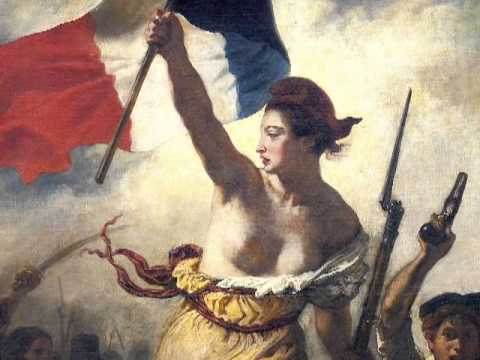
Part II
The third period of philosophy from 1600-1800 AD, known as Modern Philosophy occurred during the time of the Enlightenment. The understanding of what man is changes substantially from the Ancient and Medieval philosophers. During this time many established beliefs were in serious doubt. The Protestant Reformation and the Copernican Revolution in Science lead many to seriously question fundamentally the ability to know anything. Rene Descartes is among those who have profound doubts and proposes a system of thinking that strives to determine what can be known and what can not. This will have a profound change on the understanding of liberty. Descartes most famous line, “Cogito ergo sum” “I think therefore I am” goes from an objective reality about man to a subjective reality about man. It reaches back to Plato’s dualism as Descartes reduces the essence of rational Man to thinking. John Locke, another philosopher from this time period, will draw out of this thinking the notion of personal consciousness. It is this consciousness; separate from the body and any physicality, which will determine man’s personal identity. Immanuel Kant, an intellectual descendant of Descartes will state, “the idea of a rational being is one which obeys no law except the law which it simultaneously gives it for itself.” The definition of liberty used by Justice Anthony Kennedy has its origins in this understanding of man and ultimately liberty.
The fourth period of Philosophy from 1800 AD to the present is known as Contemporary Philosophy with Fredrich Nietzsche being a famous philosopher of his time. Philosophy is totally unchained from an absolute idea, including God. There are no fixed principles. Without an objective norm to measure, human beings can make any claim about their existence without one being able to say that one was true or better than another. Though Nietzsche did not kill God, as his famous quote states, he did observe quite rightly that the Enlightenment thinking had already done so. Man was at last free to get rid of the Thou Salt Not and to replace it with the I will. Universal concepts of what was true and what was freedom is now both a product of each individual’s choosing and having no objective measure of value to these choices. All men are a result in some fashion are a result of the times in which they live, and such is the case with Justice Kennedy’s statement. This line of thinking would resonate in modern society, resulting in its application to society’s questions.
By briefly highlighting the evolving philosophical understanding of man, it was shown how the understanding of liberty changed to the definition Justice Kennedy wrote. Freedom went from the pursuit of virtue rooted in an objective reality to the notion that liberty meant doing what one could envision for the individual. A recent article from our local paper, the San Antonio Express News, Nov 1, 2012, shows the quagmire in which a notion of liberty rooted in a subjective definition has found itself. A young man of 19 years is in critical condition with persistent signs of brain death. His parents want to harvest his sperm for future grandchildren. Without an objective norm for guiding ethical decisions, the court is left to decide whose personal concept of liberty should govern: the young man’s whose wishes are unknown, his divorced parents and their natural desire for grandchildren, the (potential) future children, or society in general. Perhaps, it is time to return to the ancients’ understanding of freedom in these modern, complicated times and thus find the true heart of liberty.


One comment